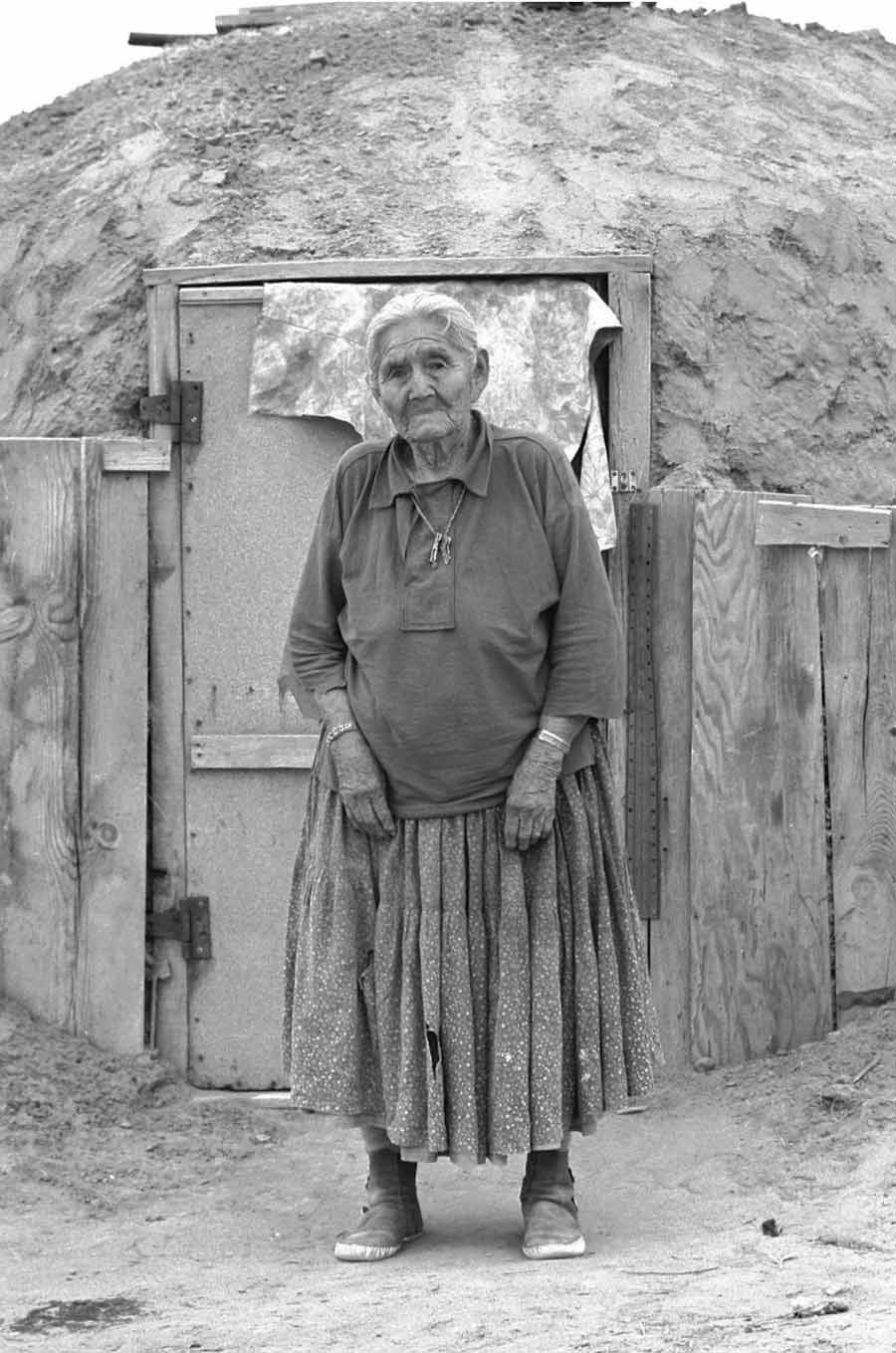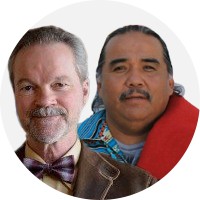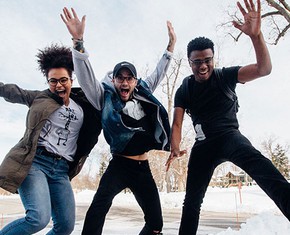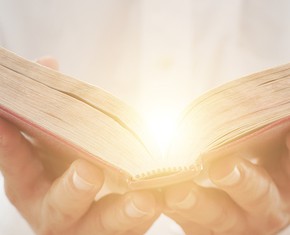The views expressed in our content reflect individual perspectives and do not represent the authoritative views of the Baha'i Faith.
In the previous essay in this series about Indigenous messengers of God, Christopher Buck began interviewing Bitahnii Wayne Wilson, a Navajo/Diné Baha’i, about his faith.
Born and raised on the Navajo reservation in Northern Arizona, Wilson faced tremendous challenges as a child. Before he discovered the Baha’i teachings, he was raised by abusive alcoholic parents, then by a grandmother—but all three died in quick succession when he was still very young, leaving him and his siblings in the care of an aunt and uncle. After high school, Bitahnii turned to alcohol, too—but soon realized that he would follow in the footsteps of his late parents if he continued. Instead, he walked to the Native American Baha’i Institute (NABI), spent a night in its prayer hogan, and “prayed himself sober.” After several years of studying the Baha’i teachings and going to AA meetings, he became a Baha’i in 1990.
In this portion of Christopher Buck’s BahaiTeachings.org interview with him, Bitahnii recounts the close connections and similarities between the traditional Diné/Navajo spiritual practices and the Baha’i teachings.
Q: Bitahnii, do you practice both Baha’i and Diné sacred teachings? Are they compatible with each other?
A: Yes, I practice my indigenous Navajo “Protection Way” and “Blessing Way” teachings and ceremonies, along with participating in my local Baha’i community by having devotional gatherings, giving service to others within my community and surrounding communities, along with deepenings we all participate in, which include reading Baha’i scriptures together and having discussions.
I spent my childhood around my late grandfather, John Burnside, a Navajo medicine man. My mother would take me around sometimes with him, and sometimes he would instruct us on how to gather medicinal herbs and the sandstone rocks he crushed and used in creating healing ceremonial sand paintings. My grandfather needed me to always pick up some specific instruments to be given out and collected before and after each Diné prayer ceremony. I later became initiated into those traditions through the “Protection Way” and the “Blessing Way.” The three main kinds of Navajo ceremonies are the “Blessing Way,” the “Protection Way,” and the “Healing Way.”
I was also initiated in the Yei Bi Chei or “Night Chant,” also known as the “Nine Night Way” ceremony, in which I had memorable spiritual experiences while participating in singing the chants and helping out with our traditional Navajo all-night devotional ceremonies and purification rites in obtaining healing. There I found a spiritual state of Hózhó—the Diné system of principles that guide one’s thoughts, speech and virtuous deeds into a state of peace, happiness, beauty, balance and harmony. I learned that they are very much the same as reading the Baha’i writings and prayers:
Shut your eyes to estrangement, then fix your gaze upon unity. Cleave tenaciously unto that which will lead to the well-being and tranquillity of all mankind. This span of earth is but one homeland and one habitation. It behoveth you to abandon vainglory which causeth alienation and to set your hearts on whatever will ensure harmony. – Baha’u’llah, Tablets of Baha’u’llah, pp. 67-68.
Q: In Chapter 12 of my book, God & Apple Pie: Religious Myths and Visions of America, there is a photograph with this caption:
Jenny Manybeads, a Diné (Navajo) Baha’i, embraced the Baha’i Faith in the 1950’s. At the age of 100, she is pictured here, in 1984, in front of her hogan (traditional Navajo sacred home of wooden poles, tree bark and mud) in Dinnebito, Arizona. Rug weaver, herbalist, and midwife, Manybeads was affectionately called the “Grandmother of Big Mountain.” She passed away on November 3, 1999, at the age of 115. (Photo courtesy of David Smith.)
Did you know Jenny Manybeads?
A: I never met Jenny Manybeads, but I do know some of her other family members. When I attended the Louhelen Baha’i School back in 1991–93, I found out I was distantly related to Jenny Manybeads through my clan. So Jenny would have also been my grandmother.
Q: What impact do you think the Baha’i Faith had on her, and on your many other Navajo relatives who have become Baha’is?
A: I can only cite Baha’u’llah, the prophet and founder of the Baha’i Faith, when he wrote:
Beseech ye the one true God to grant that ye may taste the savor of such deeds as are performed in His path, and partake of the sweetness of such humility and submissiveness as are shown for His sake. Forget your own selves, and turn your eyes towards your neighbor. Bend your energies to whatever may foster the education of men. Nothing is, or can ever be, hidden from God. If ye follow in His way, His incalculable and imperishable blessings will be showered upon you. – Baha’u’llah, Gleanings from the Writings of Baha’u’llah, p. 9.

















Comments
Sign in or create an account
Continue with Googleor